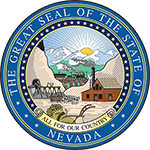Insurance Premium Tax
The Nevada Insurance Premium Tax is levied on insurance companies based on the premiums they collect from policies issued in the state.
About Nevada Insurance Premium Tax and the Rates
The Nevada Insurance Premium Tax is imposed on insurers for the privilege of transacting business in this State. Assessed upon net direct premiums and net direct considerations written.
- A tax rate of 3.5 percent is imposed on insurers for the privilege of transacting business in this State.
- Qualified Risk Retention Groups pay a premium tax of 2%.
- The premium tax is due on March 15th of each year on premiums written in the prior calendar year.
- Insurers who are required to pay a tax of at least $2,000 the preceding calendar year must pay quarterly tax payments based on actual net direct premiums and net direct considerations written for the current reporting quarter.
Insurance Premium Tax Forms
Penalty & Interest Denial Letter: PDF
- Please click the above link for additional information. The Department does not have the statutory authority to waive any such penalties and interest
related to premium taxes found in NRS 680B.027. Specifically, Insurance Premium Tax,
Industrial Insurance Premium Tax, Retaliatory Tax, and Independently Procured Coverage
Insurance Tax.
Annual Insurance Premium Tax Reconcilliation: English PDF
- Who Should Use It? Insurance companies operating in Nevada that collect premiums from insurance policies.
- Filing Frequency: Annual.
Quarterly Insurance Premium Tax Return: English PDF
- Who Should Use It? Insurance companies operating in Nevada that collect premiums from insurance policies.
- Filing Frequency: Quarterly. This return is filed four times a year to report premiums collected during each quarter.
Independently Procured Insurance Form:
English PDF || Spanish PDF
- Who Should Use It? Entities that procure insurance directly from insurers not licensed in Nevada, bypassing traditional insurance markets.
- Filing Frequency: Annually. This form reports and pays tax on premiums paid to non-licensed insurers, typically used by businesses insuring large or unique risks.
Important Payment Due Dates
- Annual Tax: Due on March 15th of each year, covering premiums and considerations written in the prior calendar year.
- Quarterly Payments: Insurers who owed at least $2,000 in tax for the previous calendar year must make quarterly tax payments.
Example Scenario
- Nevada Insurance Inc. (General Insurer)
- Nevada Risk Group (Risk Retention Group)
- Annual Net Direct Premiums and Considerations:
- Nevada Insurance Inc.: $100 million
- Nevada Risk Group: $30 million
Tax Calculation:
- Tax for General Insurers (Nevada Insurance Inc.):
- Tax Rate: 3.5%
- Net Direct Premiums and Considerations: $100 million
- Tax Calculation: $100,000,000 × 3.5% = $3,500,000
- Tax for Risk Retention Groups (Nevada Risk Group):
- Tax Rate: 2% (reduced rate effective from June 17, 2005)
- Net Direct Premiums and Considerations: $30 million
- Tax Calculation: $30,000,000 × 2% = $600,000
Total Tax Due:
- Nevada Insurance Inc.: $3,500,000
- Nevada Risk Group: $600,000
More Information
- Bank Branch Excise Tax
- Cannabis Tax
- Cigarette and Other Tobacco Products (OTP) Tax
- Commerce Tax
- Exhibition Facility Fee
- Gold and Silver Excise Tax
- Insurance Premium Tax
- Liquor Tax
- Live Entertainment Tax (LET)
- Lodging Tax
- Modified Business Tax (MBT)
- Net Proceeds of Minerals Tax
- Peer-to-Peer Car Sharing Fee
- Property Tax
- Real Property Transfer Tax (RPTT)
- Sales Tax & Use Tax
- Short Term Lessor Fee Tax
- Tire Surcharge Fee
- Transportation Connection Tax (TCT)
- Consumer Use Tax
